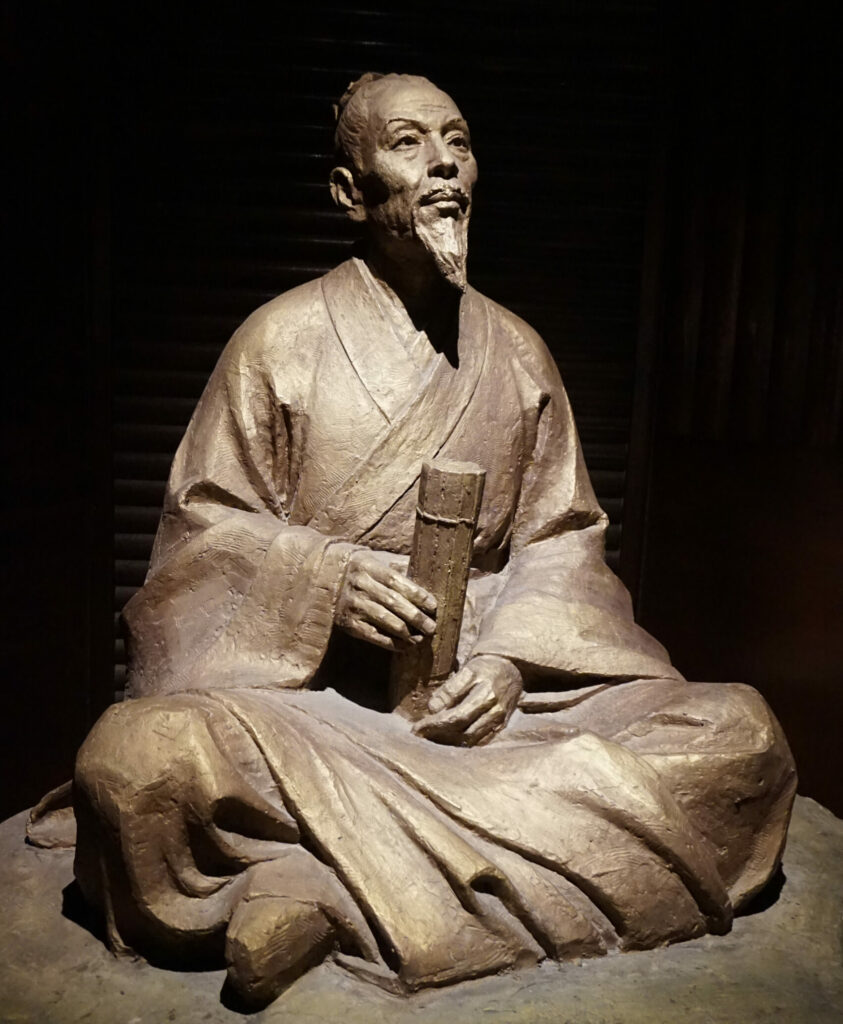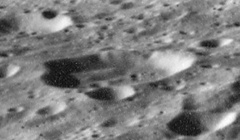Zu Chongzhi

Image credit: 三猎, CC BY-SA 4.0, via Wikimedia Commons
Zu Chongzhi (祖冲之, 429—500 AD) was a renowned Chinese mathematician, astronomer and engineer who lived in the Southern and Northern Dynasties period of China. He was born into a family of extreme talents, with successive generations being respected court-officials and astronomers with interests in calendar calculation. Zu was taught a lot of skills by his family as he grew up, and he developed a deep enthusiasm for mathematics and astronomy. After receiving his family education, Zu continued his study at the Hualin Xuesheng (華林學省) academy, and later the Imperial Central University (Zongmingguan). Both are top academic institutions in China at the time. In 461 AD, Zu followed his family tradition of serving the emperors and engaged in work as the local governor of Nanxu (today Zhenjiang, Jiangsu).
His significant contributions include, but are not limited to, his introduction of the Daming Calendar (大明历) in 465, and his approximation of 𝜋 correct up to 7 decimal places in 480. Both achievements exemplify Zu’s incredible pursuit in calculation precision: the Daming Calender counts the length of a year as 365.24281481 days (only 50 seconds from 365.24219878 days as we know today), and his approximation of 𝜋 (3.1415926 < 𝜋 < 3.1415927) led the world for more than 900 years. In memory of Zu’s contributions, a crater on the Moon was named after him, i.e., the Zu Chongzhi crater (or Tsu Chung-Chi crater).

Image credit: Jstuby at English Wikipedia, CC0, via Wikimedia Commons

Image credit: James Stuby based on NASA image, Public domain, via Wikimedia Commons
In contrast to his strong interests in maths and astronomy, however, it is said that Zu found reading classics very boring in his youth. There was one time when Zu’s father asked him to read and recite the Confucius masterpiece Lun Yu (论语; the Analects), it somehow took Zu two months to only manage to recite less than ten sentences from the book. His father was then greatly disappointed, scolded him for being useless. However, Zu’s grandfather stood out to protect him, and guided him to eventually find his own passion. It was until quite later in Zu’s life did he develop an interest in Chinese classics and wrote a book about Lun Yu.
Bussey, Ben and Spudis, Paul, The Clementine Atlas of the Moon (Cambridge, 2004).
Chertok, Boris Yevseyevich, Ракеты и люди (Rockets and people) (Moscow, 1999).
O’Connor, John Joseph and Robertson, Edmund Frederick, ‘Zu Chongzhi’, MacTutor History of Mathematics Archive, Website, <https://mathshistory.st-andrews.ac.uk/Biographies/Zu_Chongzhi/> [accessed 19 February 2023].
向阳花, ‘酷爱数学的祖冲之’, 小学生之友(高), Nanchang, March 2019, pp. 16-17, <https://doc.taixueshu.com/journal/20190045xxszy-g.html#origin=2> [accessed 19 February 2023].
Author
Yansong Li
